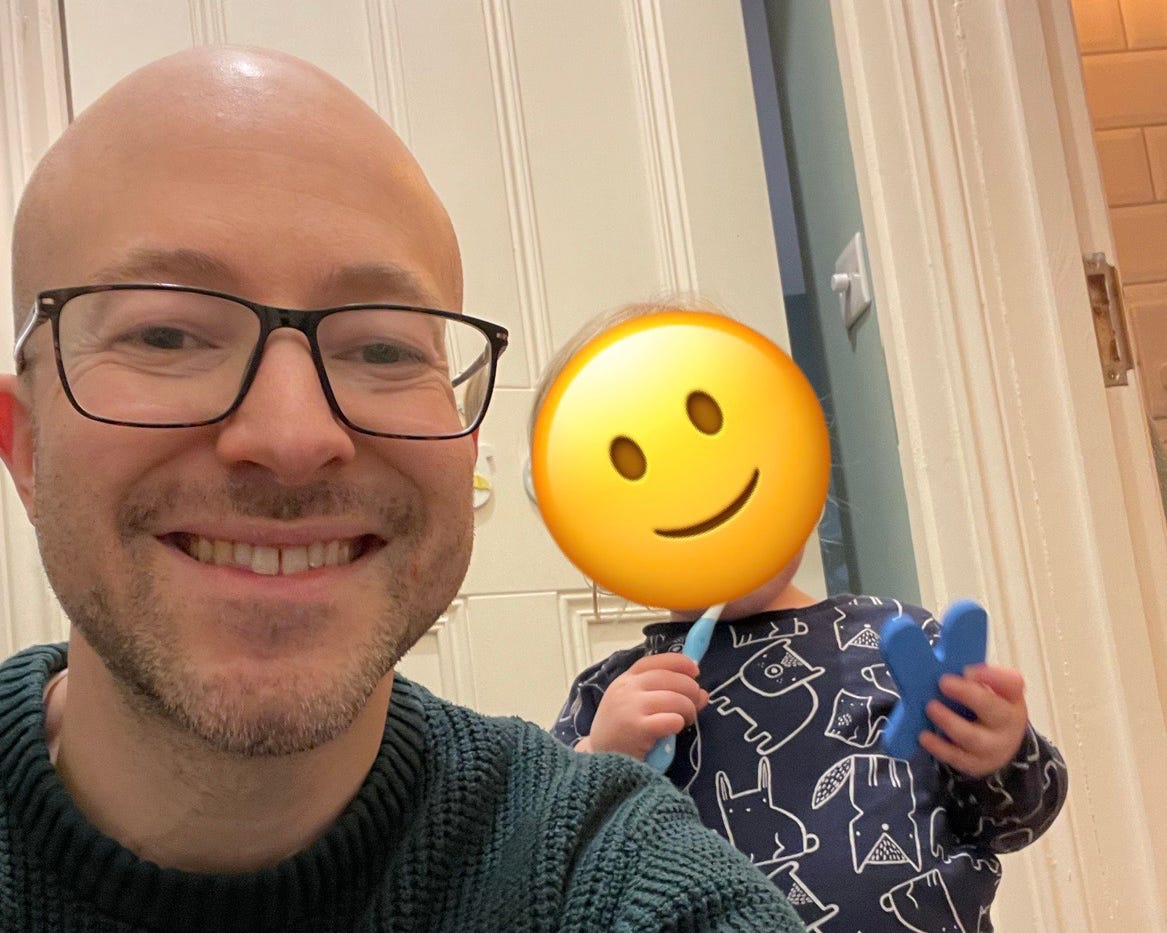Hi, Dimos here.
Welcome to the 6 new subscribers this week! 🥳
Today we have Rob Isenberg… again! Rob (LI: @robisenberg) is a freelance developer and (in his own words) a failed entrepreneur. Although I think, this still remains to be seen.
PS: Those who read last week’s interview know Rob already, so no introduction is required. We talked about freelancing and finding work as a contractor, so make sure to check it out if you haven’t!
Read time: 4 minutes
Rob Isenberg
London, UK
Has been a freelance developer since 2010
Wants to free up his time without reducing his income
Has started more than five businesses in the past
So Rob, what goals are you currently aiming for?
I'm trying to create the freedom to choose my time a bit more, to be even more in control of my destiny. I need to either increase my rate to the point where I can choose to work less or create some sort of business or software-as-a-service (SaaS) product.
That's what I'm aiming to do with TheStartupCTO.com. Be less of a commodity renting out my time, and focus more on the value I can bring to companies.
Will this be your first business venture?
No, not at all. I've started at least five that I can remember right now. For as long as I can remember, I've been starting businesses, but I don't feel I've cracked it yet. I call myself a failed entrepreneur [Rob laughs]
What are some of the mistakes you made?
The mistake I kept making over and over was going off into a cave and building for six months or a year. Eventually, I was running out of time to do the important thing, which was marketing.
The other mistake I made was picking all these different markets that I wasn't best served to put products to. I tried to help overweight teens, gym-goers, university students, and even lawyers. It makes more sense for me to focus on products and services for developers or startups. These are where my skills and experience lie.
Can you share any resources you found useful when starting a new business?
Startups for the Rest of Us by Rob Walling is some of the best free advice out there on how to start a business.
Rob has this model called the stair-step approach, where you start simple and once you've got some successful projects under your belt, you can graduate to something more challenging like a SaaS business.
For example, you can start with info products, that are very low risk and you get to learn about what it takes to build a product. Or you can build an app for platforms like Shopify because you don’t have to do the marketing. People are already searching their plugin marketplace for solutions, and you'll naturally come up.
Do you have any advice for developers who want to start their own business?
You might have heard the phrase The Surface Area of Luck, which is the amount of action you take around your passion combined with the number of people you communicate your passion to. Simply put, the more things you do, the more likelihood there is for things to come your way.
If you're just working in private as a developer and no one knows about you, the chances for things coming your way are quite small. But if you're putting stuff out there, doing side projects, open source stuff, people hear about you.
Then someone reading your stuff might want to collaborate or have a job offer for you. You can’t even conceive of what can happen. So, do more things and share them with more people.
All done! If you enjoyed this, I’d love to know!
Until next Tuesday,
Dimos
P.S. You can refer a friend and get a shoutout in the next newsletter 📬
🚀 Shoutouts & Recommendations
I’ve started reading the Weekend Web Dev newsletter by Devan. Each week he shares one project tutorial you can build over the weekend and three cool project ideas for when you’re looking for inspiration.
If you’ve been reading Dev Tales, you know how important side projects are, which is why I like the Weekend Web Dev. The latest issue uses React, Next.js, and Prisma to build a SaaS platform.
*You can get featured in this section by sharing this newsletter with 1 friend.


